-
Academics
- Academics Overview
-
Undergraduate
- Undergraduate Overview
- Agricultural Education
- Early Childhood Education, B.A.
- Elementary Education, B.A.
- Middle Level Education, B.S.
- Mathematics Teaching, B.S.
- Modern Languages Education, B.A.
- Special Education, B.A.
- Secondary Education, B.A.
- Science Teaching, B.S./B.A.
- Athletic Leadership Minor
- Human Capital Education and Development
-
Master's and Specialist Programs
- Master's and Specialist Programs Overview
- Athletic Leadership (Online)
- Counselor Education
- Educational Leadership
- Human Resource Development
- Learning Sciences
- Literacy (Online)
- Middle Level Education, MAT
- Modern Languages, MAT
- Secondary Education, MAT
- Special Education (Online)
- Student Affairs
- Teaching and Learning (Online)
- Teaching and Learning, Ed.S.
- Doctoral Programs
- Certificates | Endorsements | Licensure
- Expressway to Tiger Town
- Bachelor's To Master's | Teacher Residency
- Teaching Fellows
- Research
- Programs
- Students
- About
Connected Learning in Education and Research Lab
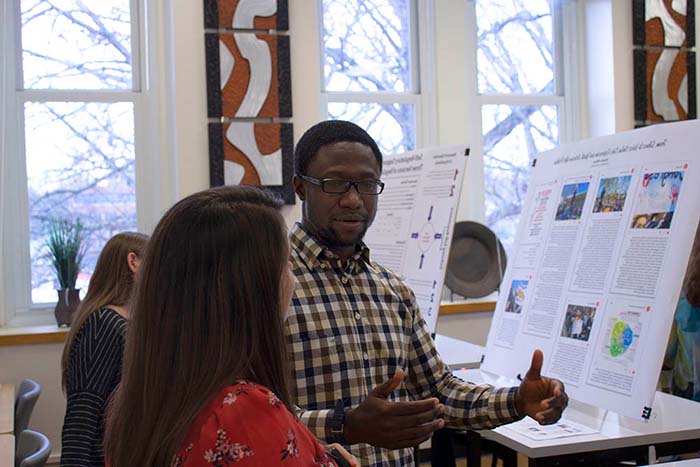
Established in 2019, the Connected Learning in Education and Research (CLEaR) Lab is co-located in the College of Education at Clemson University and School of Education at the University of Pittsburgh. We are a team of faculty and graduate students in the learning sciences who study participatory learning, development, cognition, assessment, and issues of equity and access. We research and apply innovative approaches to connect learning in formal and informal environments to solve practical problems in education. Our passionate team members use a variety of methodological approaches, share scholarly work and discuss pressing issues in the learning sciences.

-
Faculty
 DANIELLE HERRO
DANIELLE HERRO
DIRECTOR CLEMSONDani Herro - Current Projects
STEAM Longitudinal Research - Administration, Instruction and Student Learning
This project is in the 7 th year of study with my co-collaborator, Dr. Cassie Quigley (University of Pittsburgh) and several science education and learning sciences students assisting with the project each year. Working in 6 different school districts in 3 states, we have investigated STEAM professional development, created a research-based instructional model for STEAM, studied implementation practices of teachers and student’s ability to collaborate in STEAM problem solving. The most recent phase of this project involves measuring student learning/achievement after participating in STEAM units and exploring makerspaces and making during STEAM problem solving.
Computational Thinking and Collaborative Problem Solving
This project explores how students in grades 3-8 in a variety of public and charter schools in the greater Pittsburgh area participate and collaborate in computer science focused STEAM curricula aimed at enhancing computational thinking. The work is funded through an 18-month PA-Smart Grant in partnership with South Fayette County Schools, Digital Promise and the University of Pittsburgh. Our team includes learning sciences and science education students from the College of Education at Clemson and the School of Education at University of Pittsburgh. We have just finished a year of data collection and analysis with publications forthcoming.
THINKER (Technology-Human Integrated Knowledge Education and Research)
This project is funded through a 5-year, $2,900,000 NSF/NRT grant under the direction of Dr. Laine Mears at Clemson University and the ICAR campus in Greenville, SC. The focus of this project is on training multi-hierarchical teams of tech school, undergraduates, masters and PhD students engineering practices through a variety of project-based challenges. I work with a team of computer and learning scientists to develop measurements which gauge student’s ability to collaborate in computer-supported collaborative environments. Our team has just completed our second year of data collection - observing and interviewing students working in face:face and online environments.
Automating Benchmark Assessment in Elementary Schools – AI and Running Records
In elementary schools nationwide, assessments are used to assess how children process continuous text by examining the accuracy and rate at which children read as well as the sources of information used or neglected. These assessments, referred to commonly by educators as benchmark assessments, include passages of short fiction and non-fiction text administered, and then manually scored, from one to four times a year or more for children who are receiving intervention services. For this project, our team, consisting of Dr. CC Bates (Associate Professor of Literacy, Clemson), Research Associates at the Watt Center (https://www.clemson.edu/centers-institutes/watt/about/) and Creative Inquiry undergraduate students, is using the AI Watson features of speech-to-text to automate the process of running records as part of benchmark assessments. Phase one of this project involved collecting a large set of audio files for dialect analysis and then mapping a set of rules for student error and self- correction in order to determine, with precision, how the AI might work. We hope to pilot the AI with classroom teachers during the 2020-21 school year. Our intent is to leverage AI speech-to- text to generate a transcript that teachers can quickly review and use to find students’ appropriate reading level - and thus assist students in finding books they can read and enjoy while continuing to build fluency and comprehension.
I am an Associate Professor of Digital Media and Learning in the Learning Sciences program and CLEaR Lab Director. Prior to joining the faculty at Clemson University I was a classroom and computer resource teacher and technology administrator in Wisconsin; I earned my PhD at the University of Wisconsin, Madison. In 2013-16, I was a Gordon/MacArthur Foundation Fellow for 21st Century Learning and Assessment, and most recently a Watt Faculty Fellow investigating how artificial intelligence might improve teaching and learning. My research interests involve the efficacy of STEAM education to provide equitable and connected learning environments for all students, and ways to promote computational thinking and data science in rural elementary students. I am passionate about working with kids to learn about their interests with digital media outside of school and thinking of engaging ways to bring these valuable youth practices into schooling. In my work, I focus on investigating the intersection of digital media and games, identity, collaboration and social practices - and learning.
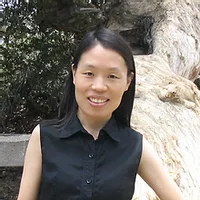 MEIHUA QIAN
MEIHUA QIAN
CO-DIRECTOR CLEMSONI am an associate professor of educational psychology at Clemson University. I received my Ph.D. in Educational Psychology and Inquiry Methodology (dual majors) at Indiana University at Bloomington in 2014. I joined Clemson University in 2013, and i teach courses on educational psychology, measurement, and statistics. My current research focuses creativity assessment, game-based learning, test bias, item response theory models, and machine learning. I have published my research in several highly ranked journals, including Computers in Human Behavior, Creativity Research Journal, Elementary School Journal, Psychology of Aesthetics, Creativity and the Arts (PACA), Journal of Creative Behavior, Journal of Psychoeducational Assessment, and Psychology & Marketing.
 CASSIE QUIGLEY
CASSIE QUIGLEY
DIRECTOR PITTCassie Quigley - Current Projects
Her current projects include understanding how girls and students of color can be engaged in STEM. Specifically, she is interested in how their occupational identity can include STEM. She is working with seven schools across PA to study how their teaching of STEAM and Computational Thinking affects the students' identity.
Additionally, she started an after-school program called "Sisterhood of Coding," where girls of color are learning to create apps that help solve some of the environmental issues in their neighborhoods. Finally, she studied how informal and formal spaces can overlap in a unique setting where a middle school is placed within a museum. She hopes to document what is working in this place to draw implications for how K-12 schools can be more open to inquiry, student interests, and problem-solving.
I am an Associate Professor of Science Education in the Department of Instruction of Learning at the School of Education at the University of Pittsburgh. I received my doctorate in Curriculum & Instruction at Indiana University in 2010, after working as a high school biology and physics teacher. My research focuses on broadening the ideas of and participation in science, so all students feel connected to science. I work with in-service teachers on expanding their current pedagogical practices to include equitable approaches, often framed as STEAM Education, where students work to solve real-world, relevant problems collaboratively. Recently, I have been examining how collaboration promotes or distances girls and students of color in STEM. At Pitt, I direct the STEAM Education Program and teach science methodology courses. I am also a member of the Environmental Sustainability Coalition, and co-conspirator for the Justice Collective to work against racism.
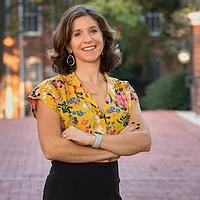 SHANNA HIRSCH
SHANNA HIRSCH
CO-DIRECTOR CLEMSONI am an assistant professor in Special Education at Clemson University. My scholarship focuses on three lines of research related to special education: identifying effective instructional methods for preservice and in-service teachers in the areas of classroom management and functional-assessment based interventions, developing university-district research-practice partnerships, and integrating technology to support positive behavior interventions and supports (PBIS). Across these strands, I draw on theories related to applied behavior analysis, practice-based professional development, and multimedia design theory. The research assists us in rethinking how to better train teacher candidates and in-service teachers. I am Co-PI on a $1.4 million IES grant (Project FRaME) with Drs. Michael Kennedy and Sarah Nagro that will evaluate the effects of multimedia tools and other instructional methods within preservice education. I also oversee the Clemson Mixed-Reality Teaching Project. In partnership with Kennesaw State University, we have integrated mixed-reality simulation into special education majors’ field experiences.
-
Students
 CAITLIN ANDERSON
CAITLIN ANDERSON
DOCTORAL STUDENTI am a PhD student in the Learning Sciences program at Clemson University, where I also recently received my M.A. in Communication, Technology, & Society. My primary research interests explore the intersection of technology, youth interests, and citizenship. More specifically, I am interested in contemporary citizenship mediated through digital media technologies to support democratic education, especially through teaching information and media literacy skills. In my research, I often incorporate participatory learning, critical (cultural) theories, and qualitative research methods. Outside my own research, I am also working as a Graduate Research Assistant for the Center for the Recruitment and Retention of Diverse Educators (CREDE). In addition to my GA work, I am a Social Media Coordinator for a local lighting company. When I can, I like to spend my time hiking, practicing martial arts (karate and judo), watching movies, playing video games, reading, and generally enjoying time with my husband, Matt, and stepson, Bradley.
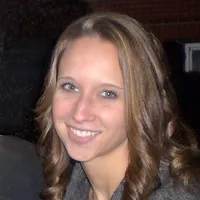 AMANDA BENNETT
AMANDA BENNETT
DOCTORAL CANDIDATEAmanda Bennett - Current Projects
One of Amanda Bennett's current projects involves her dissertation research study which examines early childhood teachers' conceptualization of STEAM (science, technology, engineering, arts, math) instruction and the ways in which they incorporate STEAM practices into their classrooms. Additionally, she is examining the extent to which STEAM instruction influences children's development of social, emotional, and cognitive skills. Using a mixed methods approach, her research design involves conducting an online survey to identify participants, as well as a follow-up interview to examine teachers' understanding of STEAM instruction, the extent to which teachers incorporate STEAM practices, and how STEAM influences children's development of various social and emotional skills.
Bennett is also collaborating with a colleague at the University of Pittsburgh on a research project that involves examining school administrators' understanding of STEAM instruction and what supports they provide to the teachers at their respective schools. Additionally, Bennett is working with her advisor on a project that examines the link between district level teacher demographics and student achievement outcomes in the publicly available Stanford Education Data Archive (SEDA). The primary objective of this project is to better understand the reasons behind the low levels of teacher diversity across the nations, and how and why it varies from one district to another.
I am DOCTORAL CANDIDATE in the Learning Sciences program at Clemson University. Prior to attending graduate school, I had five years of teaching experience in early childhood classrooms in Virginia and Pennsylvania. My experience in the higher education context includes teaching several semesters of a Child Development course for Clemson’s pre-service teachers. When not working on my own research, I am involved in several other projects including working as a graduate research assistant for the Center for the Recruitment and Retention of Diverse Educators (CREDE), assisting in conducting professional development workshops for in-service teachers, and collecting district and state level data surrounding teacher diversity. Outside of her academic life, I enjoy spending time outdoors, teaching workout classes, traveling, and spending time with my fiance.
 ABBY BAKER
ABBY BAKER
DOCTORAL CANDIDATEAbby Baker - Current Projects
Abby Baker’s cognate in the Learning Sciences program at Clemson University is in Digital Media and Learning (DML), specifically within informal learning spaces. Baker’s research looks at student perspectives of working and learning within university makersapces. Baker is currently working on her dissertation which investigates: (1) why students choose to participate in university makerspaces; (2) what skills, relative to 21st Century skills students perceive they learn in makerspaces; and (3) what college students are making in university makerspaces, and how these products relate to their personal and academic interests. Using a case study approach, Baker is using Connected Learning Theory to frame her investigations of these spaces on a college campus.
Another project Baker has collaborated with her classmate and colleague, Amanda Bennett, on looks at real-world connections elementary students draw between STEAM-based makerspace activities. This research builds on the foundational work of Baker’s advisor, Dr. Dani Herro and colleague, Dr. Cassie Quigley University of Pittsburgh (Herro, Quigley, & Abimbade, in review). Baker and Bennett’s work was published in the 2020 Society for Information Technology & Teacher Education (SITE) international conference proceedings (see Baker, Bennett, Herro, Quigley, 2020).
Baker is also collaborating with Bennett and another fellow Learning Sciences doctoral student, Abigail Stephan, on investigating the impact of play-based learning in preschool for kindergarten readiness. The authors had their work on this project accepted in 2019 and 2020 to the International Conference on the Value of Play hosted by Clemson University. The authors intend to compile the last two years of data collection and research into an article to submit to a peer-reviewed journal.
I am DOCTORAL CANDIDATE in the Learning Sciences program at Clemson University. My research interests focus on informal learning spaces. Specifically, in makerspaces or institutions using play-based learning. When I am not working on my research, I can usually be found directing a local nonprofit that I founded in in a nearby community that is located inside my former elementary school. The nonprofit is Holly Springs Center which celebrates and hosts classes on Appalachian Arts and Culture. The Center was established in 2016 and is proud to also offer a Play-Based preschool to two-, three, and four-year-olds. Outside of directing, work and graduate school I love to spend my days outdoors or working on home projects with my husband, Brett and Golden Retriever, Brady!
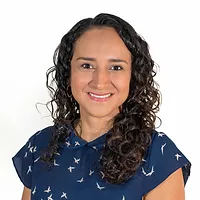 HAZEL VEGA QUESADA
HAZEL VEGA QUESADA
DOCTORAL STUDENTI am a 4th year PhD Student in the Learning Sciences program at Clemson University. Prior to starting my doctoral studies, I worked on professional development of in-service and pre-service teachers and taught English as a foreign language to adult learners for over 15 years in Costa Rica. At Clemson, my teaching experience includes classes on TESOL principles, learning theories, and assessment at undergraduate and graduate levels. As a graduate research assistant, I focus on community-based participatory design methods to work towards co-designing a data science education program for youth in after-school programs in Greenville, SC. In my free time, I enjoy working out, doing outdoor activities, dancing with my boyfriend Allen, and connecting with family and friends in my home country.
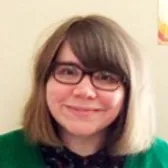 APRIL PELT
APRIL PELT
DOCTORAL STUDENTI am a 3rd year PhD Student in the Learning Sciences program at Clemson University. I use connected learning and feminist critical theories to study students’ experiences of building and learning from narrative and virtual worlds. I also study informal physical and digital learning spaces, with a particular focus on issues of access and equity within affinity spaces and makerspaces.
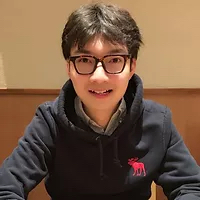 SHUYU HUANG
SHUYU HUANG
DOCTORAL STUDENTI am a 3rd year PhD Student in the Learning Sciences program at Clemson University. Before attending graduate school, I had three years of prior experience teaching educational psychology and developmental psychology at the college level in China. I also worked in the Psychological Counseling Center in college. When I am not working on my research, I am involved in several other projects, including working as a graduate research assistant for research a project of creativity assessment in data coding and analyzing as well as a research project of intervention on pre-service teachers in data analyzing. Outside of my academic life, I enjoy spending time outdoors, traveling, and spending time with my wife and son.
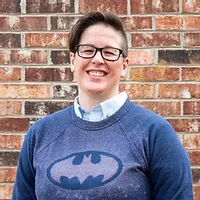 KERI CRIST-WAGNER
KERI CRIST-WAGNER
DOCTORAL STUDENTKeri Crist-Wagner
Keri's research interests focus on the use of comic books in higher education. Together with her research partner, April Pelt, she will be collecting data on the ways in which college students interact with and learn from sequential art texts in the classroom.
I am a 2nd year PhD Student in the Learning Sciences program at Clemson University. My primary research interest is the use of comic books in higher education classrooms. In particular, I would like to examine how the integration of sequential art texts (comics, cartoons, graphic novels, and graphic narratives) supports the development of critical thinking skills, facilitates discussion of difficult subject matter such as racism, classism, homophobia, and ableism, and explores nontraditional assessment of student learning. I am also interested in intersectional and critical pedagogy, and how sequential art texts can model and encourage student exploration of the intersections of race, class, gender, and sexuality in order to help students enact change in their learning spaces. Broadly, I am interested in studying curricular infusion of popular culture, with a focus on instructional design, digital media, and connected learning as a way to transform society.
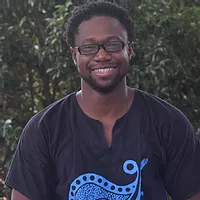 'DARA ABIMBADE
'DARA ABIMBADE
DOCTORAL STUDENTI am a 2nd year PhD Student in the Learning Sciences program at Clemson University. My research focuses on designing innovative brain-based pedagogies for students with learning or memory deficits (short and long term), as well as integrating technology into teaching and learning to develop learners’ social, emotional, cognitive and non-cognitive intelligences. I am interested in designing an adaptive virtual learning environment with affordances/features such as generating data to assist learners to discover the best way to learn and providing data to help teachers create adaptive content, learning objects, resources and assessment for individual learners, offering settings and resources where learners can learn content that suits them, helping learners collaborate with other learners of the same learning style and cognitive abilities, and intelligent tutoring settings that provide additional learning support for students.
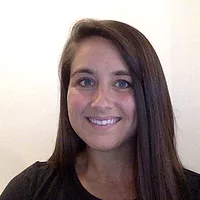 HILLARY HENRY
HILLARY HENRY
DOCTORAL STUDENTI am a PhD student in the University of Pittsburgh's Learning Sciences and Policy Program. The current research I am participating in includes developing a longitudinal case study of a mathematics instructional coach’s growth over time as well as designing tools to be used by coaches as they work one-on-one with teachers. Both projects are funded by the McDonnell Foundation. Before graduate school, I spent six years as a fifth-grade teacher and grade level chairperson. I facilitated professional development for fellow educators, sharing my curriculum implementations at the district level. Additionally, I served on the district’s Science Feedback Committee; where we collaborated to create district-wide assessments, STEAM related activities and science labs.
 ALEX JOHN CARLSON
ALEX JOHN CARLSON
DOCTORAL STUDENTI am a 2nd year PhD Student in Special Education, College of Education, Clemson University. Prior to beginning his doctoral studies Alex worked as a Special Education Teacher and Special Education Department Head in Indianapolis, IN and as a Program Director for a non-profit in Philadelphia, PA. His current research interests include teacher preparation, Positive Behavior Interventions and Supports, and legal and policy issues in Special Education.
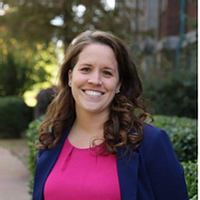 HOLLY M. PLANK
HOLLY M. PLANK
DOCTORAL STUDENTHolly M. Plank - Current Projects
Computational Thinking and Collaborative Problem Solving
This project explores how students in grades 3-8 in a variety of public and charter schools in the greater Pittsburgh area participate and collaborate in computer science focused STEAM curricula aimed at enhancing computational thinking. The work is funded through an 18-month PA-Smart Grant in partnership with South Fayette County Schools, Digital Promise and the University of Pittsburgh. Our team includes learning sciences and science education students from the College of Education at Clemson and the School of Education at University of Pittsburgh. We have just finished a year of data collection and analysis with publications forthcoming.
Research Practice Partnership with Children’s Museum of Pittsburgh and Manchester Academic Charter School
Empowering Youth is a partnership with Manchester Academic Charter School (MACS) and the University of Pittsburgh School of Education with the goal of creating and enacting a partnership that represents the spirit of MACS and the Children’s Museum of Pittsburgh. This project explores how learning occurs in multiple places in multiple ways in the MuseumLab. The team approaches learning as a way to broaden boundaries, opportunities, and knowledge. Together, the two organizations are striving to promote learning for all and to expand the ideas about what learning is and how learning happens. The goal of the partnership is to learn from each each other, support one another’s work, aspirations, and goals. Ultimately, we want to empower youth together.
Prior to attending Pitt, Holly was a traditionally trained teacher and 2013 Teach for America corps member. She taught middle school and physical science while serving as the science department chair for three years in Tulsa, Oklahoma. After earning a master’s in Educational Administration, Curriculum and Supervision from the University of Oklahoma, Holly served as an instructional coach, content facilitator, and school director for Teach for America-Greater Tulsa for three years. Holly’s research interests include teacher education, STEAM, outdoor education, and critical social justice in higher education. As a graduate student researcher, Holly is working on projects related to computational thinking and collaborative problem solving as well as collaboration between standards-driven and learner-driven educational contexts. Holly also enjoys spending time outdoors, traveling, and playing volleyball in her free time.
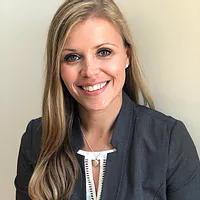 JANA Z. BONDS
JANA Z. BONDS
DOCTORAL STUDENTJana Z. Bonds - Current Projects
My current projects would be my Dissertation in Practice (DiP) for the University of Pittsburgh and research interests concentrate on learning approaches that build the confidence of students while addressing educational inequities. My focus is on empowering girls and underrepresented populations to pursue careers in STEM through engineering designed problem-based instruction. I also am interested in learning more about best practices for building professional development opportunities for educators to help build girls' occupational identity.
I am a 2nd-year DOCTORAL STUDENT in the STEM education cohort of the EdD program at the University of Pittsburgh. I hold a Master of Education degree in Technology Education from California University of Pennsylvania and a Bachelor of Science degree in Technology Education from Millersville University. I have taught the last twelve years at Emory H. Markle Middle School in the 6th -8th grade Technology & Engineering Education Department. I also serve as a board member for the PA Technology Student Association (TSA), EHMMS TSA chapter advisor, PA-TSA Leadership Conference Director, and South Western STEM Leadership Committee. My research interests concentrate on learning approaches that build the confidence of students while addressing educational inequities. My focus is on empowering girls and underrepresented populations to pursue careers in STEM through engineering designed problem-based instruction and occupational identities.
-
Contact
General Information - clearlab@clemson.edu
Find us on Twitter - @lab_clear
Danielle Herro
CLEaR Lab Director - ClemsonCassie Quigley
CLEaR Lab Director - PittMeihua Qian
CLEaR Lab Co-Director - ClemsonShanna Hirsch
CLEaR Lab Co-Director - Clemson
